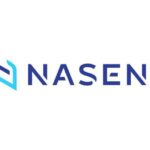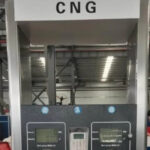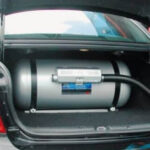The federal government in its drive to boost a gas-powered economy has hosted the first-ever Compressed Natural Gas (CNG) Stakeholders and Investors’ Forum with a target to achieve conversions of one million vehicles to gas by 2027.
Autogas conversion is one of the initiatives under the gas economy as the Presidential Compressed Natural Gas Initiative (PCNGi) rallied stakeholders to drive the initiative.
The high-power forum themed, “Nigeria’s CNG Revolution: Harnessing Opportunities for a Sustainable Future” featured presentations, panel discussions, exhibition, and networking among the attendees comprising key figures, critical stakeholders, and indigenous and international experts in both public and private sectors, spanning across the energy, transportation, finance, and environment value chain.
The occasion, among others, enabled stakeholders and investors the opportunity to assess the potential of Nigeria’s CNG industry; evaluate government’s ongoing efforts in advancing CNG as a sustainable fuel alternative for the nation; examine the regulatory framework vis-à-vis international best practices; and explore the economic opportunities that abound in the sub-sector in the committed transitioning to a gas-powered mobility system in the coming years.
- NIGERIA DAILY: Ways To Start Your 2024 Right
- We can’t watch drug abuse destroy Nigeria’s future – Buhari
Speaking on a “A Comprehensive Overview of Nigeria’s CNG Ecosystem”, Project Director and CEO of the Presidential CNG Initiative, Engr Michael Oluwagbemi, disclosed the federal government’s plan to put one million gas-powered vehicles on the road by 2027, at an average annual rate of 250,000 vehicle conversions per year.
Others include the establishment of 40,000 auto gas conversion workshops; and the creation of 750,000 jobs by 2027, across the emerging CNG value chain.
Oluwagbemi noted that given the characteristics of CNG and its benefits as a cheaper fuel, the strategic vision guiding the initiative is to alleviate the cost of living for Nigerians by significantly reducing the cost of transportation, and ultimately improve the standard of living with a cleaner and safer fuel.
He said: “In all of these, our strategic objectives are very clear: How do we reduce the cost of transportation for the common man? How do we make Nigeria’s gas work for him or her? How do we ensure that this gas working for Nigeria gives Nigeria an economic advantage?”
Mr Toyin Subair, another member of the PCNGi, corroborated the economic advantage of Nigeria adopting CNG as alternative fuel and reaffirmed that the transition is for the betterment of every Nigerian and the nation as an economy. “The good thing about this initiative is that we don’t need to subsidise or buy imported petrol. We (Nigeria) have our own gas here, and the 6 million commercial vehicles (that will be converted) are ours. If we dive into this commercial opportunity, we’ll bring down the cost of transportation for the average Nigerian,” he said.
On his part, Dr Armstrong Takang, CEO of the Ministry of Finance Incorporated (MOFI), and member of the PCNGi Steering Committee, emphasised the crucial aspect of training engineers to implement the programme successfully.

 Join Daily Trust WhatsApp Community For Quick Access To News and Happenings Around You.
Join Daily Trust WhatsApp Community For Quick Access To News and Happenings Around You.


